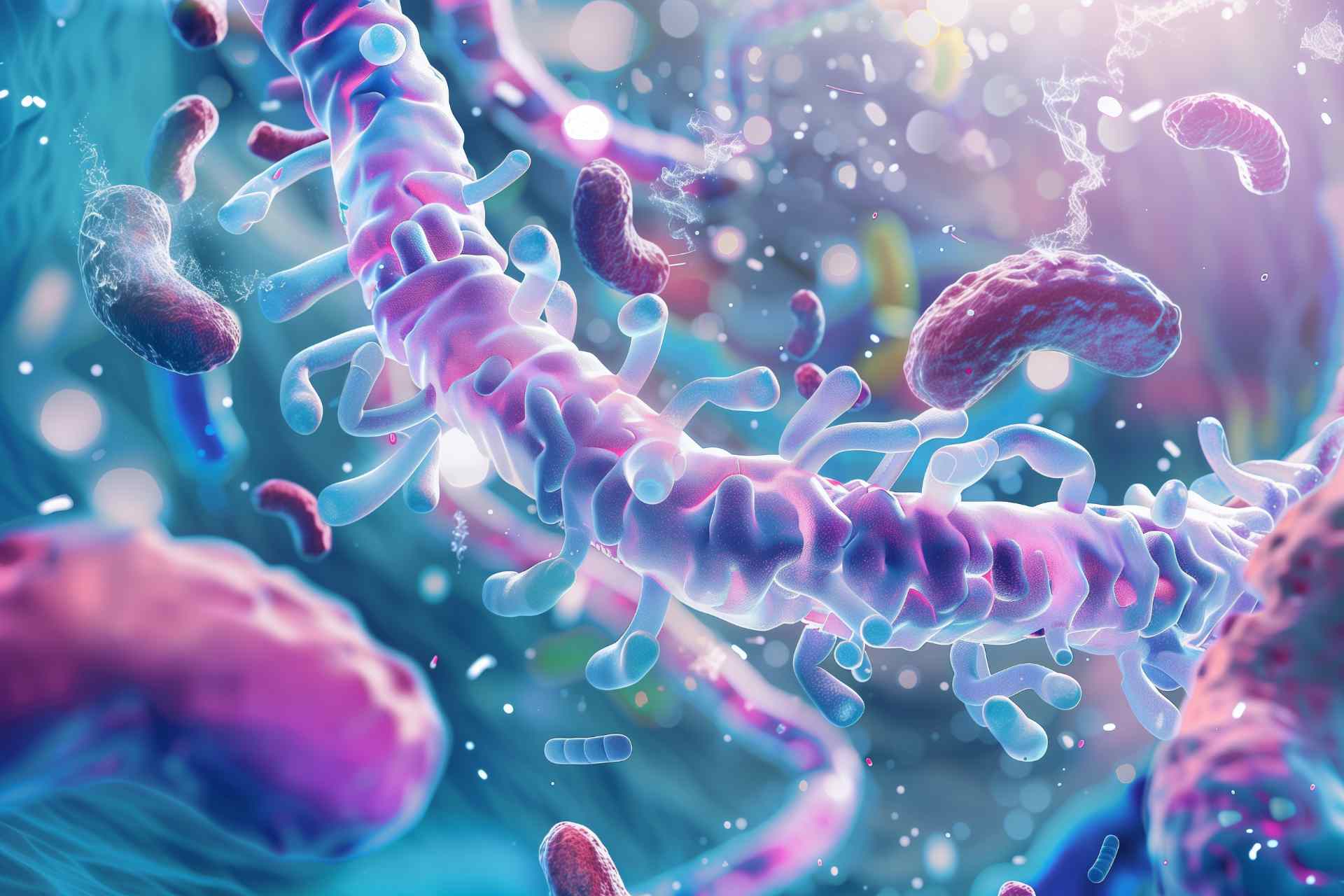What is already known
Interleukin-17 (IL-17) is an inflammatory molecule that is involved in several processes, including cancer. Signaling through IL-17 also contributes to gut barrier immunity by regulating the growth of intestinal microbes. But it’s unclear whether IL-17 signaling in the gut could influence distant tumors through microbial regulation.
What this research adds
Working in mice, researchers have found that deleting the receptor for IL-17 leads to alterations in the gut microbiota and results in the growth of pancreatic and brain tumors. This growth is likely due to the excessive development of immune cells that secrete IL-17 and other inflammatory molecules, which circulate to distant organs such as the brain or the pancreas.
Conclusions
The findings suggest that the crosstalk between gut microbes and the host’s immune system can influence the body’s defenses during cancer therapy.
Gut microbes have been involved in both the development of cancer and the regulation of a person’s immune system. Now, researchers have found that immune signaling in the gut can influence the growth of distant tumors through microbial regulation.
The findings, published in Cancer Cell, suggest that the interplay between gut microbes and the host’s immune system can influence the body’s defenses during cancer therapy.
The crosstalk between gut bacteria and the immune system plays important roles in maintaining intestinal homeostasis and inhibiting inflammation. For example, signaling through interleukin-17 (IL-17) — an inflammatory molecule that is involved in several processes, including cancer — also contributes to gut barrier immunity by regulating the growth of intestinal microbes. However, it’s unclear whether IL-17 signaling in the gut could influence distant tumors through microbial regulation.
Working in mice, researchers led by Vidhi Chandra at the University of Texas MD Anderson Cancer Center in Houston investigated the molecular mechanisms that may underlie the microbial regulation of tumor behavior.
Triggering inflammation
As IL-17 latches onto its receptor IL17RA, it triggers conformational changes that allow signaling adaptors to bind the receptor. This promotes the activation of several signaling pathways, which result in the production of various inflammatory molecules. IL17RA is also required for maintaining gut microbiota homeostasis.
Mice that lack IL17RA have altered gut microbiotas and increased levels of IL-17, which promoted the growth of pancreatic tumors, the researchers found. Deleting IL-17RA only in the gut of mice also resulted in microbial dysbiosis and affected the growth of distant tumors.
What’s more, IL-17RA deletion triggered the excessive development of two types of immune cells called Th17 and B cells. Both cell types are main sources of IL-17 and other inflammatory molecules, which circulate to distant organs such as the brain or the pancreas.
Healthy microbiota
Further experiments showed that the production of IL-17 promotes tumor growth through the activation of an enzyme called DUOX2. DUOX2 is involved in protecting the body from pathogens and maintaining mucosal immunity.
“DUOX2 expression in pancreatic tumor cells has been linked to increased tumorigenic potential and associated with worse prognosis,” the researchers say. The levels of this enzyme, they add, are associated with IL-17 in pancreatic ductal adenocarcinoma, a highly aggressive tumor.
Deleting IL-17RA in cancer cells or reducing the levels of specific gut microbes reversed the tumor-promoting effects in the pancreas, the researchers found. These results, they say, underscore the importance of a healthy gut microbiota on distant tumor growth.











